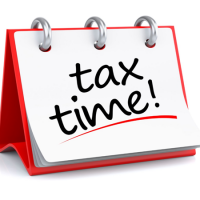
If you’ve taken the important decision to set up your own business, then you’re not alone. Many people are discovering the benefits of being their own boss and making a living for themselves. Here are some handy tips for getting started:
You’ll want to do all the fun, exciting things first like join a local networking group, design a logo, get a website sorted and dabble in a bit of marketing. However, one of the first things you should do is get the financial stuff out the way. Once you’ve sorted out your crucial financial status, then you can return the fun stuff.
Will you be self-employed or a limited company? This is an important decision because you cannot start trading through a company that doesn’t exist. If this is the route you choose, you’ll need to set up the limited company before do anything. You can choose the self-employed route and then change to a limited company.
If you decide to set up a limited company, then you’ll need to incorporate your company. An accountant can help you with what’s involved. For Accountants Cheltenham, visit Cheltenham based Accountants https://www.randall-payne.co.uk/
You’ll need to check that no other business has the same name which you can do on the Companies House website. There’ll be some forms to fill in and a small charge.
If you decide to follow the self-employed route, you’ll need to register for self-assessment with HMRC. You will be expected to complete a tax return at the end of each tax year. This option buys you some time as you don’t have to inform them until the October after the end of the tax year.
You’ll want to open a separate business account. There are several reasons for this:
It makes it far easier to track how profitable your business is.
It makes bookkeeping a lot easier.
If HMRC ever did perform an investigation into your business, you won’t have to show them your personal information.
Have a think about how you intend to pay yourself. Self-employed business owners can take out any money as the business will be taxed on profits and not earnings. Withdrawing from a limited company will be considered personal income and taxed as such.
It’s important to make a note of some important tax deadlines. Self-employed tax assessments must be completed and paid by the end of January following the end of the previous tax year.
The year end for a limited company runs from the first date you set it up. To submit your accounts to Companies House and pay your tax, you have 9 months after the first anniversary of the creation of your company. To submit accounts and business tax returns to HMRC, you have one year after the first-year anniversary.



